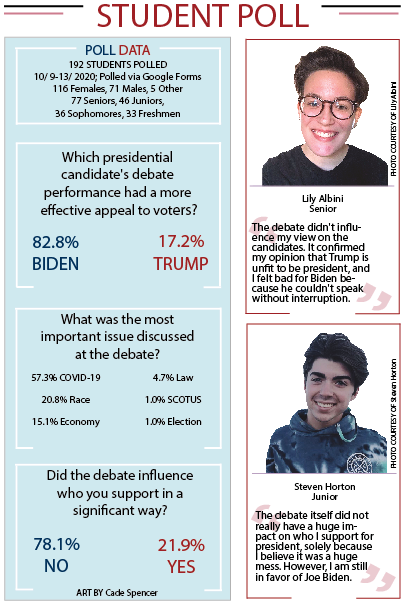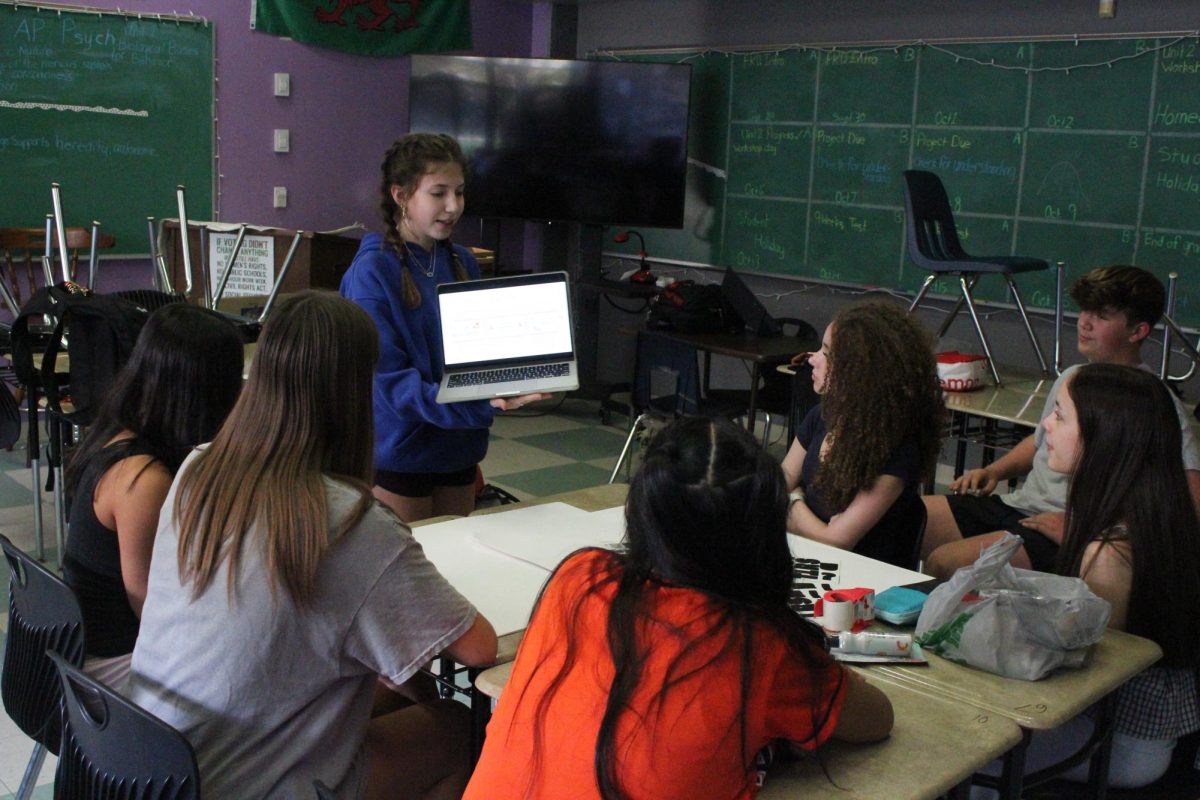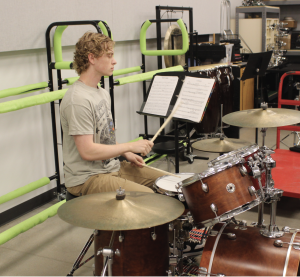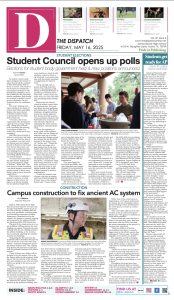First presidential debate
Students reflect on the program’s political and social impact
On Sept. 29, the two candidates, incumbent Republican Donald Trump and Democrat Joe Biden, participated in the first of two presidential debates. Student participated in a poll for the running debate parties.
October 30, 2020
When only given an hour and thirty minutes to appeal directly to the American people, every second counts in the presidential debates. As the Nov. 3 Election Day looms closer, each candidate is working tirelessly to cement their bases and coalitions.
On Sept. 29, the two candidates, incumbent Republican Donald Trump and Democrat Joe Biden, participated in the first of two presidential debates.
“The debate made me feel disappointed in both candidates, due to the lack of professionalism on both ends, with all the interruptions and insults, instead of using the format of the debate,” senior Adam Neill said. “I believe Trump’s debate performance had more of an effective appeal because he seemed to know exactly what he was saying and could back up his arguments.”
In a recent Dispatch poll, 82.8 percent of students considered Biden’s debate performance to have had a more effective appeal to voters while 17.2 percent sided with Trump.
“I believe that neither were phenomenal, but I was drawn to Biden’s approach of talking directly to the camera,” senior Lily Albini said. “It made me feel like he was talking directly to me and other voters.”
In order to increase debate efficiency, the program was divided into six topics: Supreme Court, COVID-19, economy, race and violence, law and order, and election integrity.
“While all of these topics are important, I believe the focus needs to be on COVID-19 and race,” AP U.S. History teacher Kaylin Brett said. “While the focus should be on stopping the spread of COVID-19, the next focus needs to be reforming the societal flaws that COVID-19 exposed.”
According to the Dispatch poll, 57.3 percent of student’s believe COVID-19 to be the most pressing issue at the debate and in the upcoming election.
“This virus is affecting most aspects of life and should be the focus of the president entering office,” Albini said. “Once it is gone, or at least severely decreased, we can make more change [in other issues].”
In an effort to increase student participation in the election process, the first district-wide mock election will be held on Oct. 27, allowing all Bowie students to cast an unofficial vote through Naviance for their preferred candidate.
“I do not think that the debate applied specifically to young voters,” Albini said. “I am hoping that young voters are more educated and passionate about social change and the environment, focusing more on climate change, LGBTQ+ issues, and racism.”
Before Nov 3., the second and final debate is expected to take place on Thursday, Oct. 22 from 8:00 p.m. to 9:30 p.m. Central Daylight Time (CDT).
“We need a leader that is going unify us to fight this global pandemic,” Brett said. “If people are inspired, they will have hope for the future; they will be able to see optimism.”









